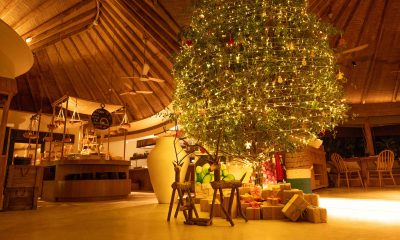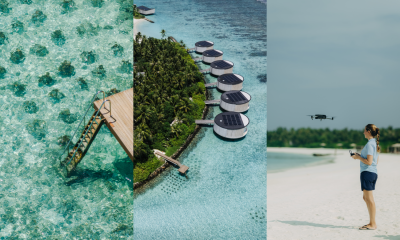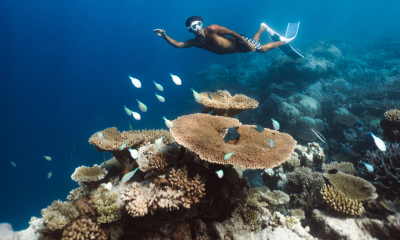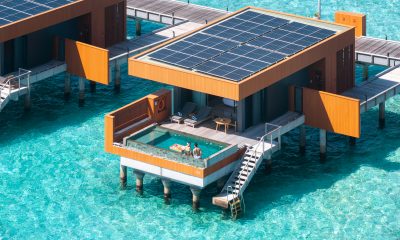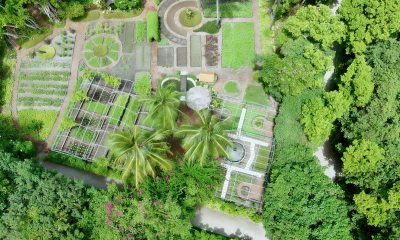Featured
Six Senses Laamu: championing sustainable tourism, protecting paradise

Encompassing almost 2,000 islands in the heart of the Indian Ocean, Maldives is famous for its clear blue skies, turquoise waters and powder soft white sand beaches. With an abundance of dive sites featuring a unique underwater beauty to explore, the country has also become known as one of the world’s best scuba diving destinations.
This tranquil natural beauty of the Maldives still remains unmatched anywhere else in the world. More than a million tourists from around the world come to the Maldives every year to savour this in-explicably impeccable beauty. While several islands remain untouched, many play host to luxurious holiday resorts and palatial accommodations.
With tourism growing rapidly, there is an urgent need to preserve the Maldives’ delicate environment and ecosystem — the top selling point of a country with no other natural resources to depend on. A lot is being done to adopt and maintain a sustainable tourism approach. Resorts are also taking it upon themselves to find new ways to use renewable sources for energy and to cut down on their carbon footprint.
But there is one in particular that has perfected sustainable tourism like no other in the Maldives. Six Senses Laamu, the only resort in the relatively unexplored Laamu atoll, takes sustainable tourism to a whole new level, with environment-friendly practices and conservation efforts deeply embedded in every aspect of the resort — from design, build and service experience.
The 97 award-winning accommodations are a combination of on-land and overwater villas constructed from sustainable materials. Weathered timber jetties lead to the overwater havens secluded by high wooden enclosures. Lush forest surrounds the stylish beach villas in utmost privacy. They all offer the ultimate island lifestyle, with one or two bedrooms, private leisure and dining decks, and many well-thought out features for guest comfort.

An Ocean Beach Villa at Six Senses Laamu. PHOTO/ SIX SENSES
Sea breezes drift amongst the rustic wood under high palm-thatched roofs at the villas and dining venues as well. Many of the mouthwatering dishes prepared by chefs from East and West are created using produce grown on the island. Leaf is a wonderful dining experience perched above the organic garden, while Zen offers Japanese style dining for just 12 guests. International cuisine is featured at the two-level overwater Longitude alongside the one-of-a kind glass wine cellar. Sip Sip at poolside offers a casual dining alternative with beach classics throughout the day whereas Chill Bar, open all day and night, features an authentic Vietnamese menu for lunch and a varied international menu for lunch and dinner.
True to the Six Senses’ philosophy of marrying sustainable practices with uncompromising high-end facilities, Six Senses Laamu has taken standard-setting steps and initiatives to preserve the natural environment.
“Sustainability is definitely one of our pillars, and here at this location we are committed to doing all possible to try and maintain and improve on our sustainability and marine conservation efforts,” General Manager Marteyne van Well says.

Bicycles with custom name tags at Six Senses Laamu. PHOTO/ MALDIVES INSIDER
The sustainability efforts began well before the construction of the resort and continues to this day, with buildings designed to minimise the damage to the island and lagoon. Branches were cut in a controlled way, old plant matter was left to decompose, and only fallen flowers were used for decoration.
From early stages in the design, energy conservation was given a top priority. All villas have been designed to take advantage of passive cooling, while overhanging roofs create shade for the windows, reducing the need for air-conditioning. Where air-conditioning is required, only low energy consuming units are used.

A Family Villa with Pool at Six Senses Laamu. PHOTO/ SIX SENSES
To further reduce the power demand, Six Senses Laamu has installed heat and pressure recovery systems in the production of hot water and freshwater. Through the heat recovery (cogeneration) system installed in the generators, heat is prevented from escaping and being wasted during power generation. Instead, it heats the cooling agent of the generator, gets passed onto a heat exchanger attached to the generator’s radiator and is transferred to the cold freshwater from the desalination plant via stainless steel plates. To reduce energy consumption in producing freshwater from reverse osmosis, an innovative energy recovery system (ERI) has also been installed in the desalination plant; it uses the brine’s energy to pressurise seawater to the same pressure as the brine.
Six Senses Laamu is also actively looking for ways to reduce the waste generated and to dispose of it properly. The resort works with suppliers to reduce packaging; purchases are made in bulk to avoid unnecessary packaging. To reduce the use of plastic bags as much as possible, bins that can be washed or jute bags are used. While no bottled water is imported by the resort, both guests and hosts are provided with re-usable glass water bottles that are bottled on the island. The resort also re-uses several materials, including office paper, kitchen oil, candle wax and waste wood.

Glass being recycled at the Earth Lab in Six Senses Laamu. PHOTO/ MALDIVES INSIDER
Six Senses Laamu has created its own Earth Lab, which serves as a central waste management and recycling hub. Here, waste is separated into paper, plastic, metal, glass, organic waste and toxic waste. A compactor reduces the space required to store the waste before it is sent for recycling and proper handling, while a machine is used for crushing glass into ‘glass sand’, which is mixed with cement to make plant pots and light covers, and garden waste, which is re-used in the garden, pathways and for composting.

Plant pots made using recycled glass at Six Senses Laamu. PHOTO/ MALDIVES INSIDER
A composting site has been built at the Earth Lab where food waste from the kitchen and restaurants is composted together with garden waste, which is shredded using a chipping machine. To make composting as effective and odourless as possible, waste is separated in the kitchen where all the food, except meat and seafood, is collected for composting. Meat and seafood is excluded as these items decompose slower as well as to avoid attracting rodents. The composting soil generated from this activity is re-used in landscaping and gardening.
Six Senses Laamu also features an organic garden where 40 different herbs, vegetables, salad leaves and micro-herbs are grown. Items grown here are used to prepare dishes served at the Leaf restaurant, while Executive Chef Martin Davies and his culinary team have also teamed up with the gardeners to create a daily-changing menu, entirely based on fresh and organic ingredients, served by the pool at Sip Sip. The menu features a different starter, salad, pizza and dessert every day for guests to choose from.

The organic herb garden at Six Senses Laamu. PHOTO/ MALDIVES INSIDER

The Leaf restaurant at Six Senses Laamu. PHOTO/ SIX SENSES
On the marine conservation front too, Six Senses Laamu has set an example. In addition to becoming the first resort in the Maldives to establish and implement codes of conduct for dolphin watching and turtle interaction, the resort enforces a strict no-take stance on the purchase of endangered or vulnerable fish from local fishermen. Reef check, fish watch, shark watch, barnacle studies and biodiversity surveys are conducted all year round, with data submitted to the International Union for Conservation of Nature (IUCN), Maldives Marine Research Centre and the Olive Ridley Project.
“We make substantial financial contributions to Blue Marine and Manta Trust. We have six marine biologists in that setup; two resident, and two each from Blue Marine and Manta Trust. We also have interns in sustainability and a Sustainability Manager,” Marteyne explains.
“There are many resorts doing several good things, but maybe not with this kind of manpower behind an effort.”

A protected turtle nest at Six Senses Laamu. PHOTO/ MALDIVES INSIDER
Six Senses Laamu also demonstrates operational sustainability through the practice of local sensitivity and support of local communities. The resort engages the talent of locals, with over 50 percent of its staff comprising of Maldivians, especially those from the vicinity of the resort. Additionally, fresh produce such as local fish, fruit and vegetables, and services (eg. for construction or repair work) are from the surrounding area, benefiting the local economy and communities.
Throughout the year, various contributions are made to local sustainability projects. These activities utilise the resort’s human and financial resources, and are primarily funded through Six Senses Laamu Sustainability Fund, which collects 0.5 percent of revenues to be exclusively used for the support of social and environmental projects and initiatives in the Maldives. As such, the resort provides marine education to youth in all 13 schools in the Laamu atoll, and has laid the foundation with an aim to be the first plastic-free atoll in the Maldives by 2020.

Six Senses Laamu team is pictured during a visit to a nearby island as part of its CSR initiatives. PHOTO/ SIX SENSES
“Over time, we will continue to grow and make marine conservation one of the key pillars of the resort, especially in how we share it with our staff and guests, and how we contribute to the local community,” Marteyne says.
“Four Seasons Resort Maldives Apprenticeship Programme is an outstanding vocational training scheme for young and dynamic Maldivians looking to enter the hospitality industry. I would love Six Senses to be that same educator, but in sustainability and marine conservation, so that we can create the next generation of Maldivians who are able to contribute to their communities and to their environment in making it more sustainable.”
A place with inspiring equatorial sunrises above the translucent lagoon and romantic sunsets that dissolve into the evening sea, Six Senses Laamu offers the best of a Maldivian holiday experience. With simple, yet exciting additions such as free homemade ice-creams and personalised bicycles, this palm-fringed island paradise has perfected the concept of “barefoot luxury”, giving you a sense of stepping into a different kind of reality. But what makes Six Senses Laamu truly stand out is its deep-rooted commitment to sustainability that is interwoven with every aspect of the resort — an example where hosts and guests come together to protect the island paradise for generations to come.
Featured
Cinnamon Hotels & Resorts Maldives launches March flash offer with savings of up to 80%

Cinnamon Hotels & Resorts Maldives has announced a limited-time flash offer inviting travellers to experience the Maldives in March, one of the destination’s most favourable months, with savings of up to 80 per cent when booking direct. The promotion is available across all four Cinnamon resorts in the Maldives and combines discounted rates with added island experiences, allowing guests to enjoy the destination during a period of ideal weather conditions.
The offer is open for bookings from 23 January to 2 February 2026, for stays between 1 March and 31 March 2026, using the promotional code MARCH26.
Guests booking under the offer can look forward to a range of experiences, including diving and snorkelling excursions with opportunities to encounter manta rays, reef sharks and sea turtles. On land, activities include island hopping, sunset fishing trips, Balinese spa treatments and four-course beachfront dinners. Guests staying a minimum of three nights are also eligible to receive resort credits of up to USD 150, providing additional value during their stay.
At Cinnamon Dhonveli Maldives, guests booking direct may select any two island experiences, or enjoy up to all available benefits once per stay depending on their GHA DISCOVERY membership tier, along with USD 100 in resort credits for stays of three nights or more. Available experiences include a beach dinner, a Balinese massage, a swim and snorkel excursion, and a local island visit.
At Cinnamon Velifushi Maldives, guests may select any two island experiences, or enjoy up to all benefits once per stay depending on their GHA DISCOVERY membership tier, together with USD 150 in resort credits for qualifying stays. Available options include a beach dinner, a spa treatment, island hopping and dolphin watching.
At Cinnamon Hakuraa Huraa Maldives, guests may select any two island experiences, or enjoy up to all benefits once per stay depending on their GHA DISCOVERY membership tier, along with USD 100 in resort credits for stays of three nights or more. Experiences include sunset fishing, island hopping, a bottle of sparkling wine and a kayaking experience.
At Ellaidhoo Maldives by Cinnamon, guests booking direct may select any two island experiences, or enjoy up to all benefits once per stay depending on their GHA DISCOVERY membership tier, together with USD 100 in resort credits for qualifying stays. Available experiences include a beach dinner, a Balinese massage, sunset fishing and a dolphin safari.
Under the GHA DISCOVERY membership programme, Silver tier members may select two benefits, Gold tier members may select three benefits, and Platinum tier members are entitled to all listed benefits once per stay.
In addition, GHA DISCOVERY members who book direct are eligible for further privileges, including the ability to earn and redeem DISCOVERY Dollars, potential room upgrades up to suite category, and early check-in and late check-out, subject to availability and membership tier.
Available for a limited time, the flash offer is designed to encourage travellers to visit the Maldives in March, when weather conditions are favourable and island experiences are at their most appealing.
Featured
Romantic island experiences await couples at Sun Siyam Vilu Reef

At Sun Siyam Vilu Reef, romance forms an integral part of the island’s atmosphere, unfolding from the first light of sunrise to the calm of moonlit evenings. This Valentine’s season, the boutique resort is inviting couples to rediscover connection through a curated collection of experiences designed specifically for two. From early morning moments by the lagoon to evenings beneath the stars, each experience is created to celebrate intimacy, encourage togetherness and transform simple moments into lasting memories.
One of the signature experiences offered is the Sunrise Lagoon Breakfast, designed as a gentle beginning to the day in a tranquil setting. Breakfast is served directly over the water, allowing couples to enjoy the warmth of the early sun and the sound of the waves in a private and visually striking environment. The experience is intended for guests who wish to begin the day in a quiet and intimate way.
As evening approaches, couples may retreat to the Tranquillity Package, created for those seeking relaxation and renewal together. The experience takes place in one of the resort’s outdoor cabanas during the golden hour and begins with a traditional foot bath ritual. Guests may then choose between a Balinese massage or an Asian blend massage, followed by a relaxing foot treatment. The ritual concludes with a toast using a chilled bottle of sparkling wine, reflecting the resort’s focus on personalised service and romantic detail.
Nightfall introduces an exclusive date night through the resort’s Cinema by the Moonlight experience. Couples may choose from a floating cinema aboard a dhoni, a sunset cruise with a film, or a private dinner accompanied by champagne in a tailored setting. These experiences combine cinema with the natural beauty of the Maldivian night sky, offering personalised menus and locations designed for an intimate evening.
Throughout February, Sun Siyam Vilu Reef presents its Valentine’s Collection under the theme of Coastal Blush and Champagne Bubbles. The programme includes experiences such as a floating breakfast, signature cocktails, dedicated Valentine’s spa rituals, private lagoon dining and starlit movie nights. Each element is designed to encourage connection and create a relaxed and romantic atmosphere.
Together, these experiences form a season of calm, harmony and reflection for couples, with every detail intended to deepen the sense of escape and support meaningful reconnection at Sun Siyam Vilu Reef.
Featured
The Ritz-Carlton Maldives, Fari Islands unveils Masters of Crafts programme for 2026
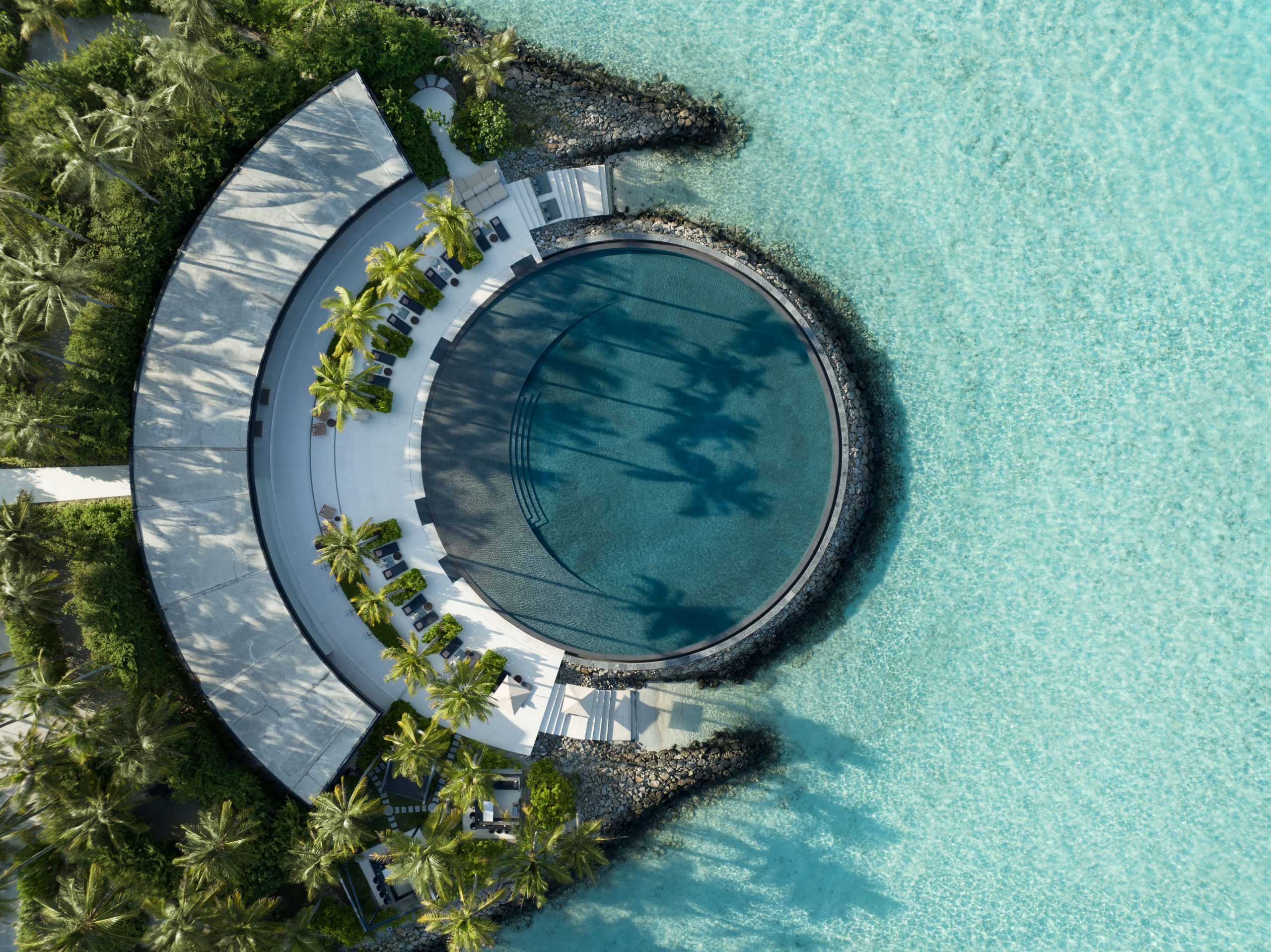
The Ritz-Carlton Maldives, Fari Islands has unveiled its Masters of Crafts programme for 2026, presenting a year-long series of residencies and collaborations designed to celebrate artistry, innovation and cultural exchange. The programme brings together internationally recognised figures across culinary arts, mixology, wellness, sport, music and design, inviting guests to engage with craftsmanship at its highest level within one of the Maldives’ most distinctive island settings.
The 2026 calendar reflects the resort’s focus on transformative travel and experiential learning, uniting masters from diverse disciplines who share a commitment to excellence. Throughout the year, guests will have the opportunity to explore a wide range of experiences, from surf coaching with a world-class athlete and guided stargazing with an astronomer, to Michelin-starred dining, bar takeovers by leading mixologists, immersive wellness practices and encounters with contemporary artists. The programme is shaped by the resort’s Blue Prescription philosophy, which emphasises wellbeing, balance and the restorative power of the natural environment.
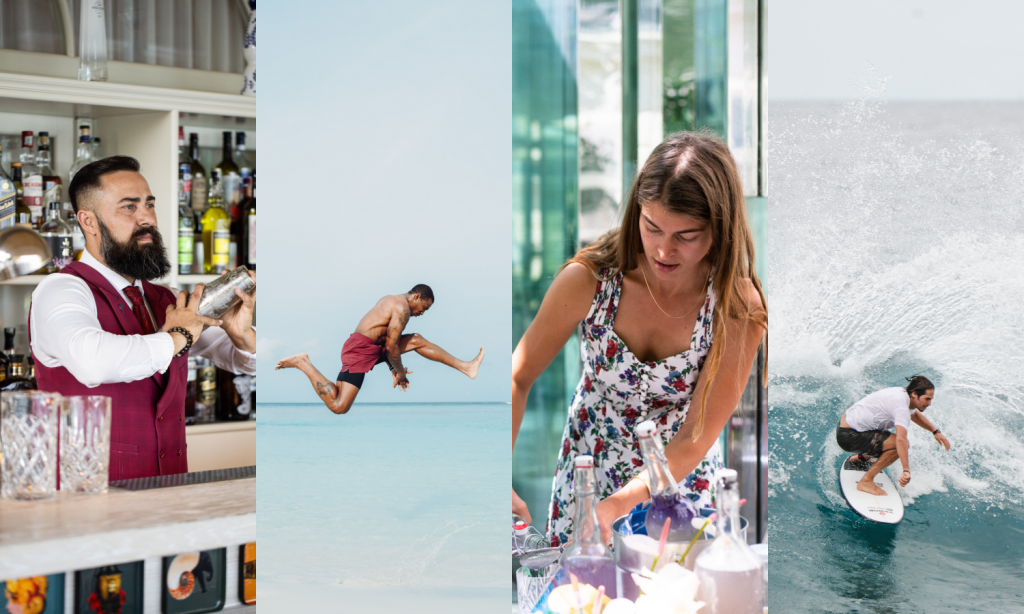
The year opens in January with the return of movement coach and founder of the Jacy Method, Jacy Cunningham, who will lead a four-day training series focused on resilience, strength and mindful movement. His sessions will take place across the resort’s gardens, beach and spa spaces, combining high-intensity training with breathwork and connection to the surrounding seascape. Later in January, singer-songwriter and producer Madison McFerrin will present a series of three performances, including a sunset gathering, a candlelit concert and a relaxed morning coffee session, offering guests an intimate introduction to her neo-soul, R&B and jazz-influenced sound.
In February, the culinary and beverage programme will be highlighted by chef Maurizio Bufi of the Michelin-starred Il Fagiano and head mixologist Rama Redzepi, who will host a series of dining and cocktail events at the resort’s Italian restaurant. Their collaboration will combine regional Italian cuisine with curated cocktail pairings, marking the opening of the Behind the Bar series for 2026.
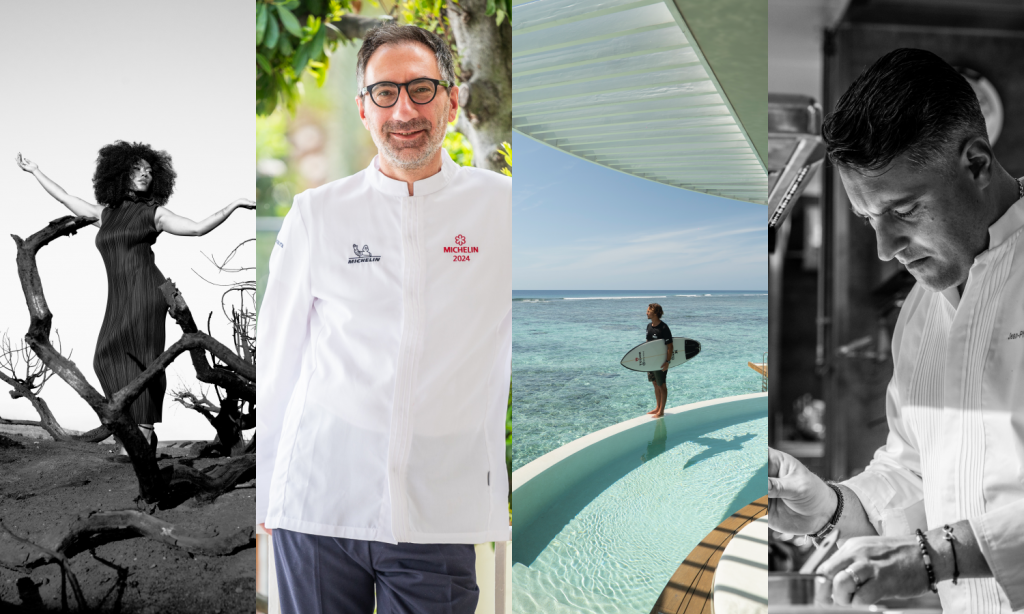
March will see the arrival of award-winning floral designer Harijanto Setiwan, who will host workshops, a botanical afternoon tea and culinary experiences featuring edible flowers, alongside children’s workshops and in-villa floral installations using locally sourced and sustainable materials. In April, astronomer and author Tom Kerss will guide guests through a programme of stargazing experiences, introducing both adults and children to the constellations visible from the Maldives and the stories, science and mythology behind them. Later in the month, mindset mentor Harriet Mandak will lead a three-night retreat for couples, offering guided workshops and shared activities designed to support conscious partnerships.
In June, a trio of leading Asian bars from The World’s 50 Best Bars list will take part in a series of bar takeovers and workshops as part of the resort’s fifth anniversary celebrations, bringing together The St. Regis Bar Jakarta, Punch Room Tokyo and Bar Sathorn Bangkok. In July, big wave surfer Nic von Rupp will return to the resort during the Maldives’ peak surf season, offering coaching sessions for both adults and children around selected surf breaks in the atoll.
The autumn programme continues in October with chef Jean-Philippe Blondet of Alain Ducasse at The Dorchester, who will present a series of fine dining events at the resort’s Beach Shack. In November, fermentation specialist Alexis Goertz will curate a five-day programme of workshops and tastings focused on gut health and probiotic cuisine during the Thanksgiving period. The year concludes in December with a mixology residency by Moebius, ranked among the world’s leading bars, followed by a mindfulness session led by author and wellbeing advocate Virginia Gambardella, integrating meditation, oceanfront reflection and alcohol-free mixology.
Through its 2026 Masters of Crafts programme, The Ritz-Carlton Maldives, Fari Islands continues to position itself as a destination for immersive, high-level experiences that combine cultural exchange, wellbeing and creative expression within a refined island setting.
-
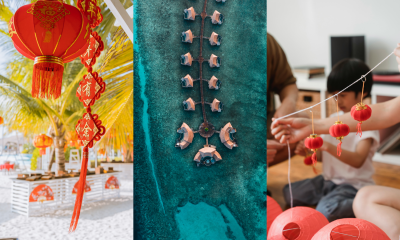
 Featured1 week ago
Featured1 week agoYear of the Horse celebrated with island-inspired festivities at InterContinental Maldives Maamunagau Resort
-
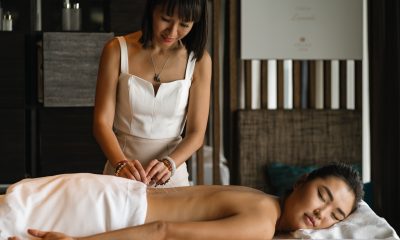
 Featured1 week ago
Featured1 week agoMilaidhoo Maldives introduces high-end wellness residency led by Dr Lim Xiang Jun
-
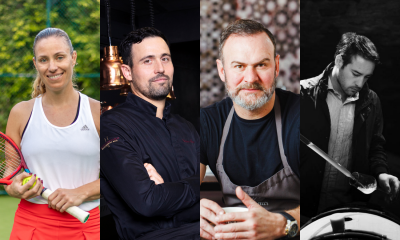
 Featured1 week ago
Featured1 week agoSt. Regis Maldives Vommuli Resort sets stage for 2026 with influential Tastemaker residencies
-

 Cooking1 week ago
Cooking1 week agoMeera Sodha to host plant-forward dining experience at Kurumba Maldives
-
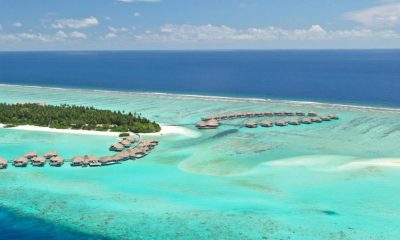
 News1 week ago
News1 week agoCOMO Maalifushi introduces new all-inclusive experience, Simply COMO
-
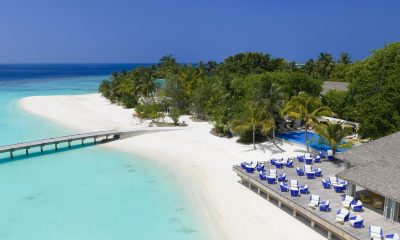
 Featured5 days ago
Featured5 days agoPulse Hotels & Resorts unveils eco-chic Eri Maldives in North Malé Atoll
-
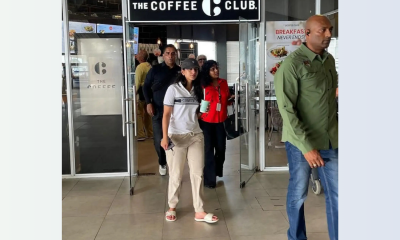
 News3 days ago
News3 days agoAmbani family members holiday in Maldives again
-
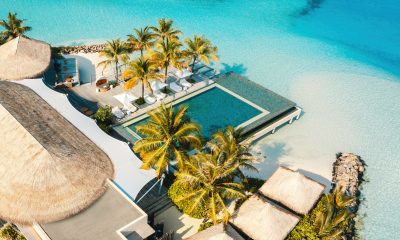
 News6 days ago
News6 days agoInterContinental Maldives unveils luxury experiences designed for solo traveller



